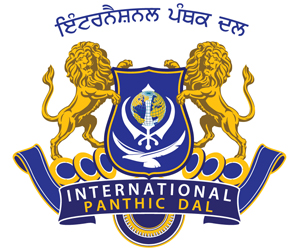First, on April 12 Davinder Pal Singh Bhullar was sentenced to death after 23 years on death row, despite pleas for clemency from leaders in the Sikh community.
Then, on Tuesday Sajjan Kumar, a senior Congress party politician, was acquitted in a case relating to the death of five people in Delhi during anti-Sikh riots in the city in 1984.
More than 3,000 Sikhs are believed to have died in the riots following the assassination of the then prime minister Indira Gandhi at the hands of two of her Sikh body guards on 31 October 1984.
Sikhs for Justice, a U.S. based group, offered a $1 million reward for witnesses to come forward with evidence leading to Mr. Kumar’s conviction, according to a report in The Times of India.
Sikhs protested the acquittal outside the Delhi home of Sonia Gandhi, the president of the Congress party, on Wednesday and Thursday. Sikh community leaders vowed to appeal the decision in the High Court.
On Thursday, Sarabjit Singh, an Indian convicted of spying in Pakistan, died after being assaulted by two inmates in a jail in Lahore. His family maintains that he was innocent, and the Sikh-led Punjab Assembly declared him a “national martyr” on Friday.
Sikh leaders say that the string of communal tragedies could have political consequences for the Congress party in next year’s elections.
Dalmegh Singh, chief secretary of the Shiromani Gurudwara Parbandhak Committee, which manages India’s Sikh shrines, said Sikhs felt that they were the target of discrimination.
“For Sajjan Kumar, the judiciary says that there was insufficient evidence [to convict him], but for Mr. Bhullar there was only one piece of evidence, his own statement to the police, and that is enough to hang him,” Mr. Singh said.
Kulwinder Singh, a former legal advisor to the Delhi Sikh Gurudwara Management Committee, said that the decisions had erased 30 years of progress. The committee manages Delhi’s 600 government-registered Sikh temples. He said that memories of the 1984 riots had begun to fade within the Sikh community, and in the last 10 years animosity towards the Congress party had lessened.
Recent events have erased that progress and “shaken the Sikh community’s faith in the Congress party,” Mr. Singh said.
The Congress party made efforts to show its solidarity with Sikhs on Friday. Rahul Gandhi, the party’s vice-president, attended the funeral of Mr. Singh, the Pakistani prisoner, in Amritsar on Friday. Local media showed pictures of him embracing the deceased man’s weeping sister. Prime Minister Manmohan Singh, a Sikh, called him a “brave son of India.”
Political analysts say that the Sikh vote is not big enough for the Congress party to offer more than words.
Sikh’s represent 1.9% of the population in India, according to the latest figures available.
Sikhs are concentrated in certain areas of the country, said Sanjay Kumar, a fellow of the Centre for the Study of Developing Societies, a New Delhi-based think-tank. They make up 60% of the population of Punjab and 6 to 7% in Delhi. He believes that Congress will lose votes in these states, but that it might not be too big a blow.
Even in those states with a large Sikh vote bank, the number of seats they have in parliament is low. Punjab has 13 out of 543 elected seats in the Lok Sabha, India’s lower house of parliament, and eight of those are held by Congress. The party also controls all seven of Delhi’s seats in the Lok Sabha.
“If this was a case regarding Muslims, Congress would have gone all-out to help the people of that community, because they form a big vote bank for [Congress],” Mr. Kumar said.
Nationally, Congress gets around 40% of the Muslim vote, Mr. Kumar said. Muslims make up around 13.4% of the nation’s population.
Rashid Alvi, a spokesman for the Congress party, said that it bore no responsibility for the decisions relating to Mr. Sajjan Kumar and the death of Mr. Sarabjit Singh. He added that the events would not have an impact on forthcoming local elections in Delhi and national elections, which must happen before May 2014. “The people of Delhi and in fact, of the whole country, are with us,” Mr. Alvi said
News Source: Wall Street Journal








